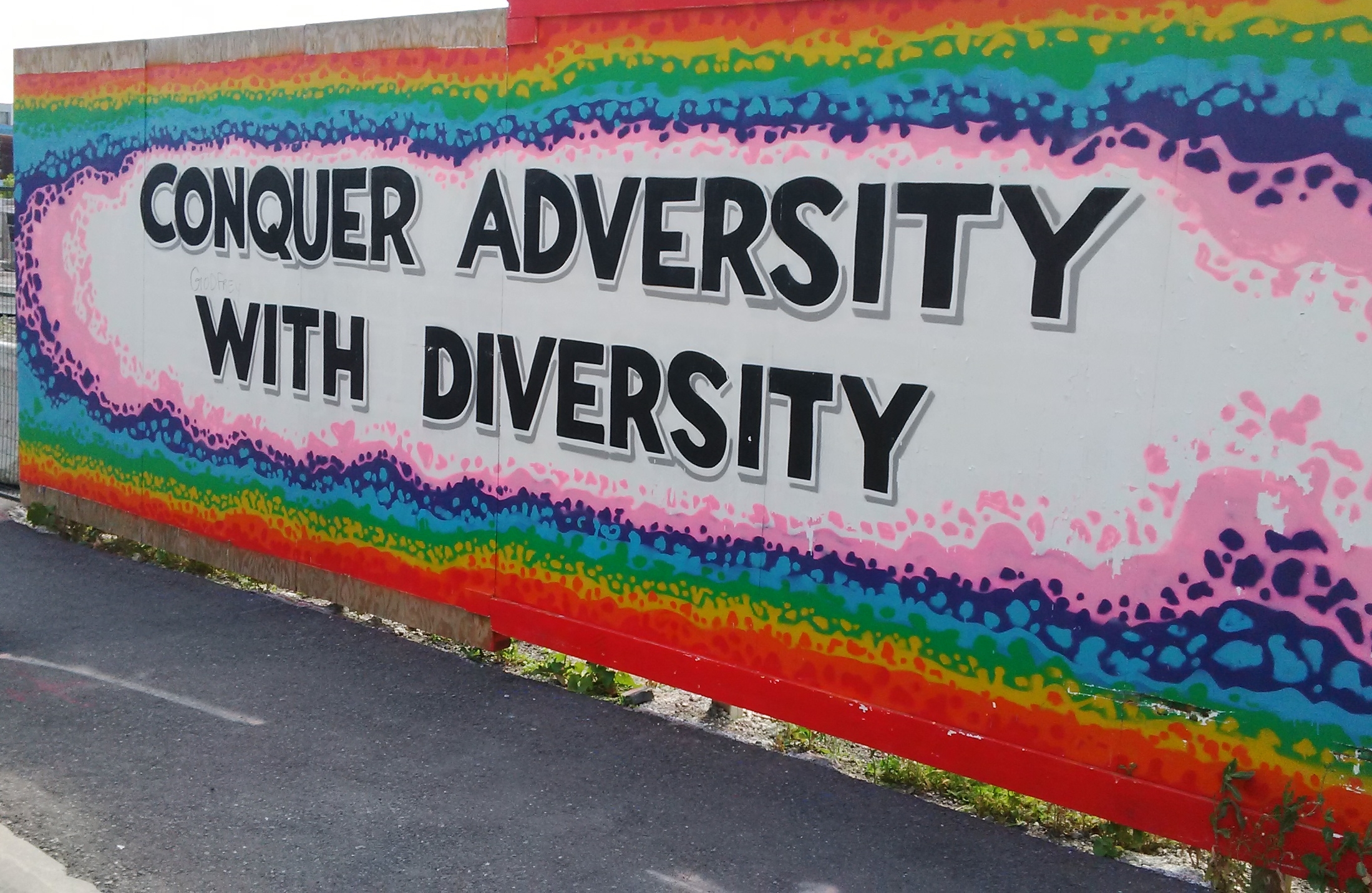“Considering the adversity of diversity”
July 16 Diversity is a valued quality, writes Chanda Katema, 19, a Correspondent from Lusaka in Zambia now studying in India, but living with diversity can challenge one’s perceptions.
Diversity is a valued quality, writes Chanda Katema, 19, a Correspondent from Lusaka in Zambia now studying in India, but living with diversity can challenge one’s perceptions.
In the middle of the conversation I stand wondering what is going on. Perhaps it’s just another language I don’t comprehend. Diversity is something to be proud of, but I wish someone had told me earlier that it comes with consequences. From all those days I found myself standing among the knowns, who spoke the unknown, I took away one important lesson. Unity in diversity ceases to exist if we fail to acknowledge the adversity within diversity.
There is a Zambian proverb, probably my favourite, which translates to English as ‘A child that does not travel thinks the mother is the best cook’. This proverb does not talk about who cooks better than a mother or how naïve the child is. Just as proverbs may sometimes be ambiguous, my view on this is slightly different. It points out the idea of accepting that people exist in different spectrums. It is when one understands the importance of this existence that we learn to appreciate the diversity among the human race.
Needless to say, opening up oneself to the ‘Foreign World’ is a great deal. To illustrate, it would be of use to discuss the John Berry model. It is a cross-cultural research focusing on acculturation. By definition, acculturation is the process by which people adjust to a foreign culture. The John Berry model is best understood with an example: if person A travels from culture 1 to culture 2, there are four main things that might happen to the individual socially. The person undergoes integration, marginalisation, separation or assimilation.
The individual is said to undergo integration if he or she maintains their own cultural identity while participating in the host culture. Marginalisation, on the other hand, will occur when an individual participates in neither his/her culture nor the host culture. Separation happens when the individual maintains his or her own cultural identity while rejecting involvement with the host culture. And lastly assimilation, where the individual becomes absorbed into the host culture by giving up his or her own cultural identity.
Furthermore, according to the John Berry model, the host culture also adopts its own acculturation approach. Firstly, the melting pot is where society pursues assimilation. Secondly, multiculturalism is where society values and encourages diversity. Thirdly, the society imposes separation by segregation. Lastly, the society imposes marginalisation by exclusion. Just like most models, John Berry’s model is not without criticism. Critics claim the model treats acculturation as though it were static. Going beyond this point is however beyond the scope of my discussion. Curious readers can look up for Teresa LaFramboise’s model that included the strategy of alternation.
In my own humble opinion, where acculturation – cultural integration to be precise – is involved, to be or not to be: that is an irrelevant question.
Of course this is not to say that other effects of acculturation are necessarily negative. However, holding on to your own cultural identity and rejecting the host’s culture may hinder the nature of a human being as a social creature in some way. In certain cases, this is common among conservative societies. An example of a country with strict measures in relation to incoming tourists is Bhutan. This is something that will always astonish me and I shall forever be proud of them. Such a move by Bhutan has shown positive results at preserving their culture and heritage; a very important sense of identity. It is a country that does not celebrate the gross domestic product but celebrates the gross domestic happiness. If Buddha was right when quoted, “happiness does not depend on what you have or who you are. It solely relies on what you think”, then in my own humble opinion I would suggest that Bhutan is the happiest country I have ever heard of.
I happen to be one of the many who are exposed to a culturally diverse nation. Revisiting adversities in diversity, there have been numerous incidents to learn and not to learn from daily happenings. Plenty of opportunities to be a part of the ancient religion, relationship proposals, several chances to visit the historical monuments, visits to the temples – the countless list goes on.
But it is under such circumstances that one ought not to look at the beauty of the flowers but the roots of his/her origin. As you accept certain beliefs, you need to reason if such creates a contradiction with your own personal, religious and cultural beliefs. This is not to say that every belief contrary to one’s own is negative. But where cultural integration is concerned, the social and personal benefits of such acculturation should outweigh the cost of it. It is such events that made me a better person, through all the times I questioned everything strange, from politics, religion, education, culture, ideologies, and theater. On the other hand, I accepted things that resonated with my intuition, common sense, logic and beliefs.
It was at that point, as I stood in the middle of the conversation wondering what was going on, that I realised the need to learn the language. This, of course, did not take much time and effort, as I learnt it from the people shouting in the streets, market places, college students around me, books and above all, the mighty Bollywood.
For all the time I have spent away from home, there is one important lesson I have learnt with respect to cultural integration: ‘Vasudhev Kutumbhkam’ a Sanskrit phrase which translates as ‘World Is a Family’.
Photo credit: Regent Park, Pat Halpin
…………………………………………………………………………………………………………………
About me: I am an energetic, ambitious person with a mature and responsible approach to any task or situation I undertake. I am currently studying Economics at the University of Delhi as a 2nd year student. As a former office bearer in my university’s student union as well as a joint secretary for the world organization for students and youth (WOSY) I have had opportunity to enhance many skills.
…………………………………………………………………………………………………………………
Opinions expressed in this article are those of the author and do not necessarily represent the views of the Commonwealth Youth Programme. Articles are published in a spirit of dialogue, respect and understanding. If you disagree, why not submit a response?
To learn more about becoming a Commonwealth Correspondent please visit: http://www.yourcommonwealth.org/submit-articles/
…………………………………………………………………………………………………………………






